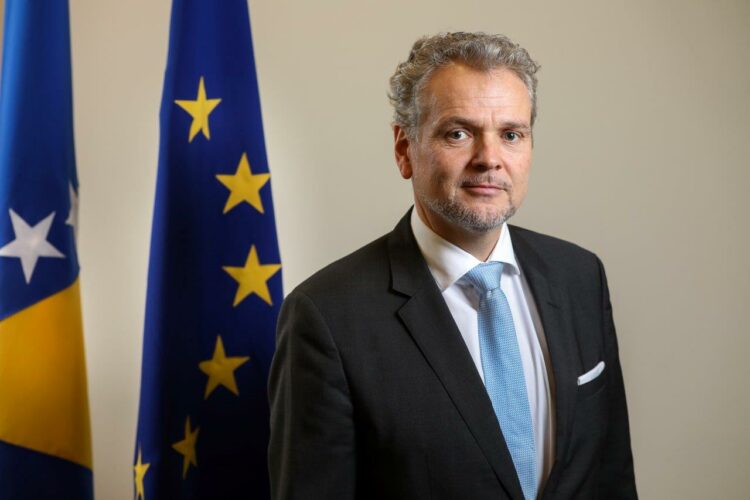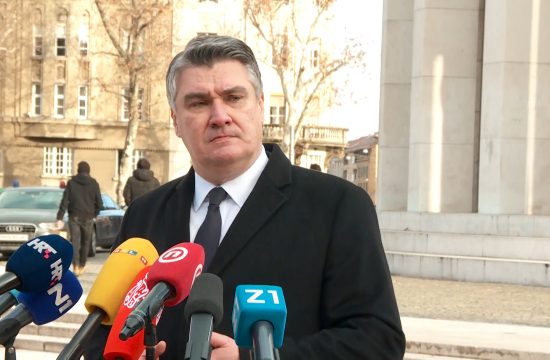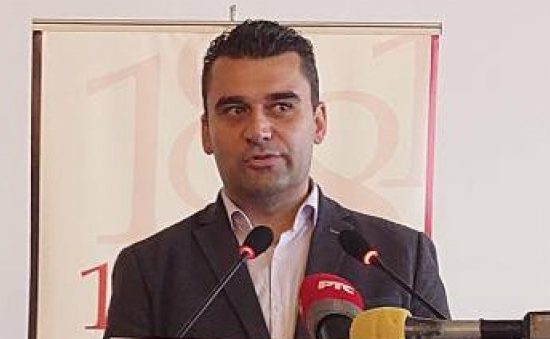
The priority of Bosnia and Herzegovina now is to consolidate its judicial capacities to tackle war crimes and ensure that the rights of survivors of gross human rights violations are effectively met, the EU Special Representative in the country, Johann Sattler, wrote in his blog on Tuesday, ahead of the July 11 Srebrenica Genocide commemoration ceremony.
His full blog post, titled ‘Peace Is Built Upon Justice’, can be read below.
“This week, as we remember the victims of the Srebrenica Genocide we stand in solidarity with the survivors and renew our commitment to bringing perpetrators to justice.
Two generations ago, the European Union gave new impetus to a movement that helped to bind up the wounds of war and move out of the shadow of the conflict, enmity and suspicion. Our predecessors in that post-war generation confronted the legacy of moral collapse. The long road to recovery was sustained by asserting shared values of humanity, empathy, tolerance and justice. And it was marked by gestures that were simple, yet enormously powerful. I am thinking, primarily, of Willy Brandt, twenty-five years after the end of the Second World War, kneeling before the monument to the victims of the Warsaw Ghetto, an extraordinary act of humility and an authentic plea for forgiveness. That gesture changed the social and political dynamic of post-war Europe.
The Potocari Memorial Centre preserves the sacred memory of those who were murdered in the Srebrenica Genocide. The Battery Factory remains in its original state, decaying and desolate, a bleak and eloquent reminder of a past that cannot be erased. But memorials are not made only of earth and stone, they are made from day-to-day acts, from enduring commitment, from the resolve of the living to bear testimony on behalf of the dead. The European Union supports the Memorial Centre and the work that began through the courage and tenacity of Srebrenica survivors. The EU has also supported the International Criminal Tribunal for the former Yugoslavia (ICTY) and it is supporting the International Commission on Missing Persons (ICMP), two organizations that have made an incalculable contribution to establishing the truth about what happened in July 1995.
Their contribution has been essential because peace can only be built on justice, and justice depends on truth.
After any war there are those who insist that crimes were committed on all sides. There are also those who seek to shift responsibility and forge a distorted and self-exonerating narrative. However, the facts about the Srebrenica Genocide are incontrovertible. Responsibility rests with those who carried out the killing and those who ordered them to do so. The truth has been established, in painful and conclusive detail, through court proceedings.
Every step that society takes towards a better future, away from past malice, requires clarity and resolve. There is no place on this long journey for denial, no place for alternative histories. The wounds of conflict can only be bound up by acknowledging the truth, by shouldering responsibility. That was the meaning of Willy Brandt’s courageous act in Warsaw, an act, it should be noted, undertaken by someone who had opposed the Nazis and the crimes for which he sought atonement.
I know that in Bosnia and Herzegovina today the vast majority of citizens are fully committed to asserting the shared values that go deep into this country’s culture. Anyone who looks with a clear and critical eye can see that the systematic human rights violations that prevailed during the conflict were an aberration.
The priority now is to consolidate the country’s capacity to try war crimes and to ensure that the rights of survivors of gross human rights violations are effectively met. Victims must be treated with respect. The harm that was done to them must be recognized. No one must be able to threaten or intimidate them. This applies especially to victims of torture.
Restoring and upholding the rule of law is a basic requirement of accession to the European Union – and a basic requirement of reasserting those shared values on which recovery and progress are built. This is a process that does not start automatically: it demands courageous and principled leadership from the highest levels of authority.
I encourage the three members of the BiH Presidency to jointly commemorate all the civilian victims of the conflict this year – 25 years after the end of the war. This would be an important contribution to start changing the dynamic of postwar Bosnia and Herzegovina – just as Brandt’s gesture in 1970 changed the dynamic of postwar Europe.
In Bosnia and Herzegovina, a new generation has embarked on a process of rebuilding – piecing together the possibilities of a better society. This is reflected in communities across the country. Day by day, the EU is supporting this renewal.
As we observe the 25th anniversary of the Srebrenica Genocide, we will continue to support in very practical ways the effort through which citizens of Bosnia and Herzegovina are reasserting their values. By doing this, I believe we will honour the dead in an appropriate and meaningful way and show genuine solidarity with survivors.”




